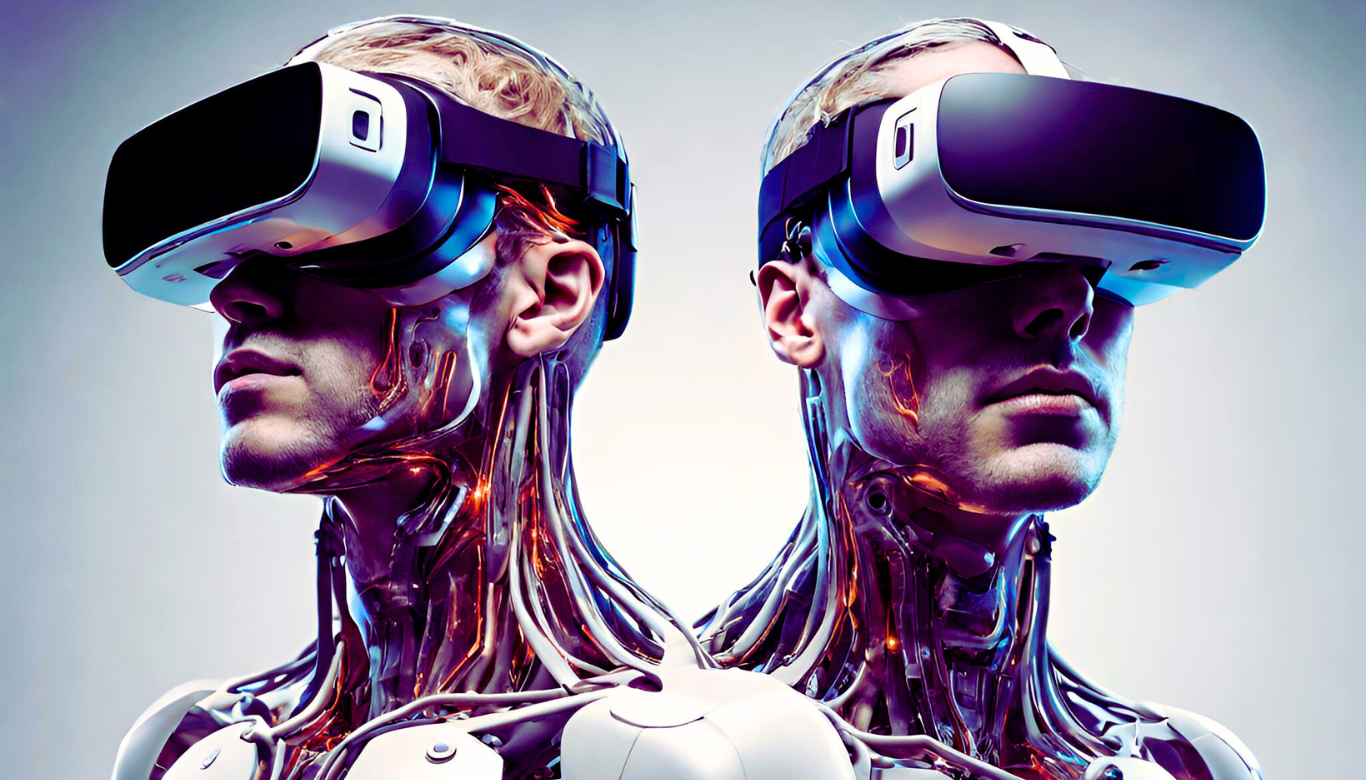
"Technological Awakening: When Virtual Reality Embraces the Mind of Artificial Intelligence." By Ame Rubik
Introduction
In an era where science fiction becomes reality, the convergence of Virtual Reality (VR) and Artificial Intelligence (AI) is unfolding before our eyes. This special feature from Rubik Tech Magazine delves into the union of these disruptive technologies and their impact on our society, economy, and ways of life.

Part 1: Virtual Reality - Beyond Entertainment
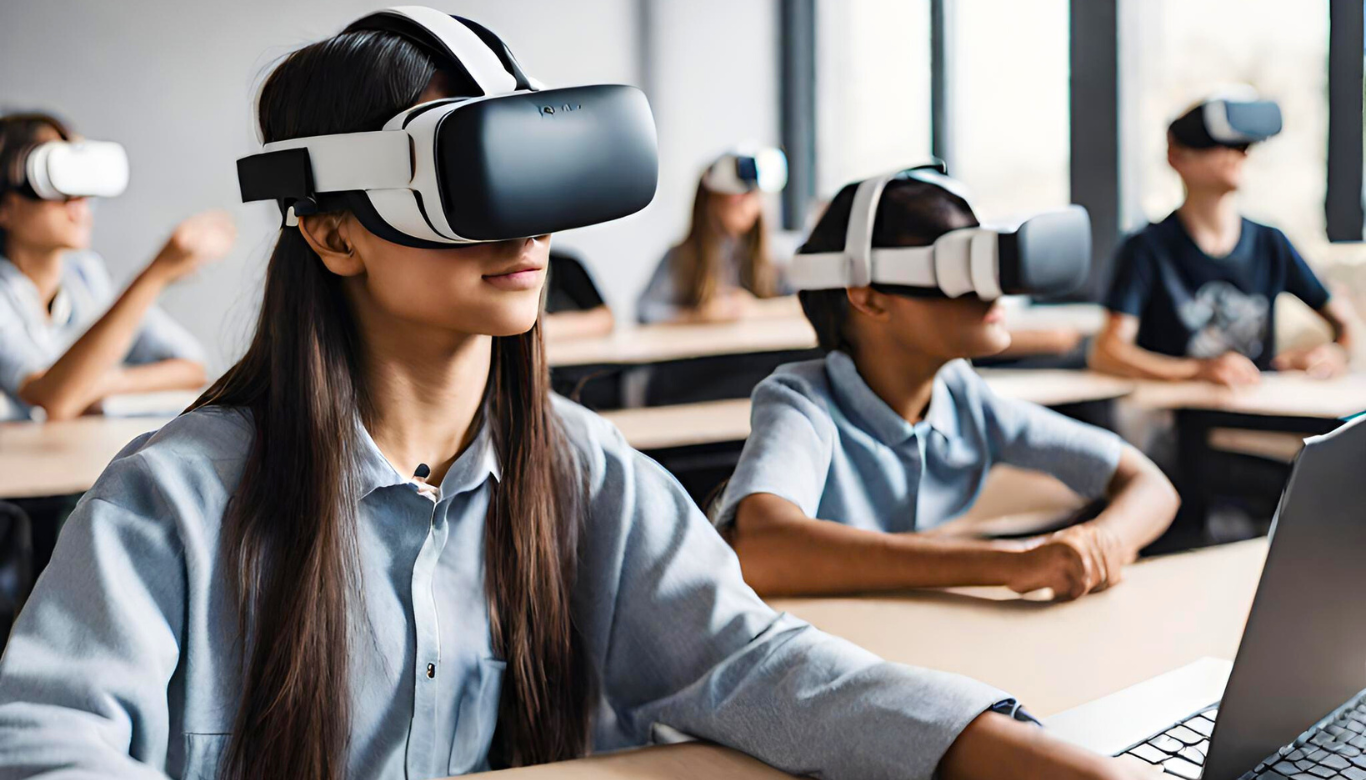
Transformed Education
The educational transformation driven by Virtual Reality (VR) is a phenomenon that continues to amaze. Today, students of all ages have access to immersive learning experiences that go beyond traditional classrooms. With VR, anatomy comes to life in three-dimensional models that allow for detailed exploration of the human body. History lessons are no longer simple passages from books but interactive adventures where students can immerse themselves in historical events and make decisions that shape the course of history. This revolution in education is transforming how we acquire knowledge, sparking curiosity, and fostering active student engagement in the learning process. VR is opening new doors to knowledge, and the potential of this technology in the educational field seems limitless.
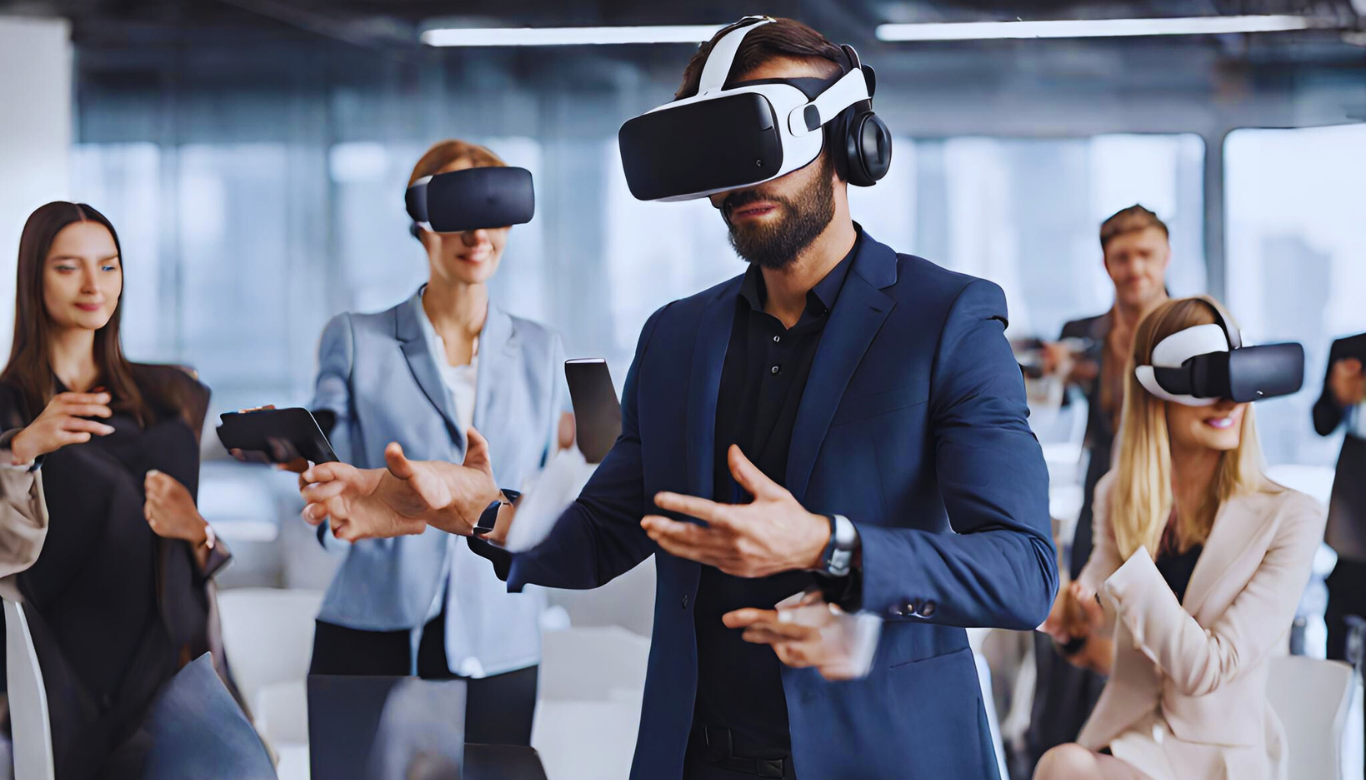
Advanced Business Training
Virtual Reality (VR) has revolutionized business training in an extraordinary way. Now, companies can provide their employees with much more effective and realistic training, which has a significant impact on efficiency and workplace safety.
From fire simulations that allow workers to experience and learn how to react in emergency situations to customer service training programs that enable employees to practice interactions with customers in a virtual environment, VR is transforming corporate training into an immersive and practical experience.
This technology not only accelerates the learning process but also reduces the risks associated with training in high-risk situations. Employees can make mistakes and learn from them in a safe and controlled environment. Furthermore, VR allows for more personalized training tailored to the specific needs of each employee.
In summary, VR has democratized access to high-quality training and is paving the way for more effective and safer corporate training. This innovative approach is enhancing employee preparedness and, ultimately, efficiency and workplace safety across industries.

Revolutionized Health and Medicine
Virtual Reality (VR) has transcended the bounds of imagination in the field of health and medicine, providing life-changing breakthroughs for both patients and healthcare professionals. This technology has proven to be an invaluable resource in diagnosis, treatment, and improving healthcare.
In the realm of medical diagnosis, VR has enabled the creation of 3D models of organs and tissues, revolutionizing diagnostic accuracy. Doctors can virtually explore the interior of the human body, identify pathologies, and plan treatments more effectively than ever before.
Regarding therapies, VR has become a powerful therapeutic tool. Exposure therapy, used to treat anxiety disorders and post-traumatic stress, has become more accessible and effective by recreating safe virtual environments for patients to gradually confront their fears.
Surgical procedures also benefit from VR, as it allows surgeons to practice and plan surgeries precisely in virtual environments before performing real interventions.
VR is not only saving lives but also improving the quality of life for patients by offering personalized and effective therapies. This revolution in health and medicine is a testament to the transformative potential of technology and its ability to elevate healthcare to unprecedented levels.
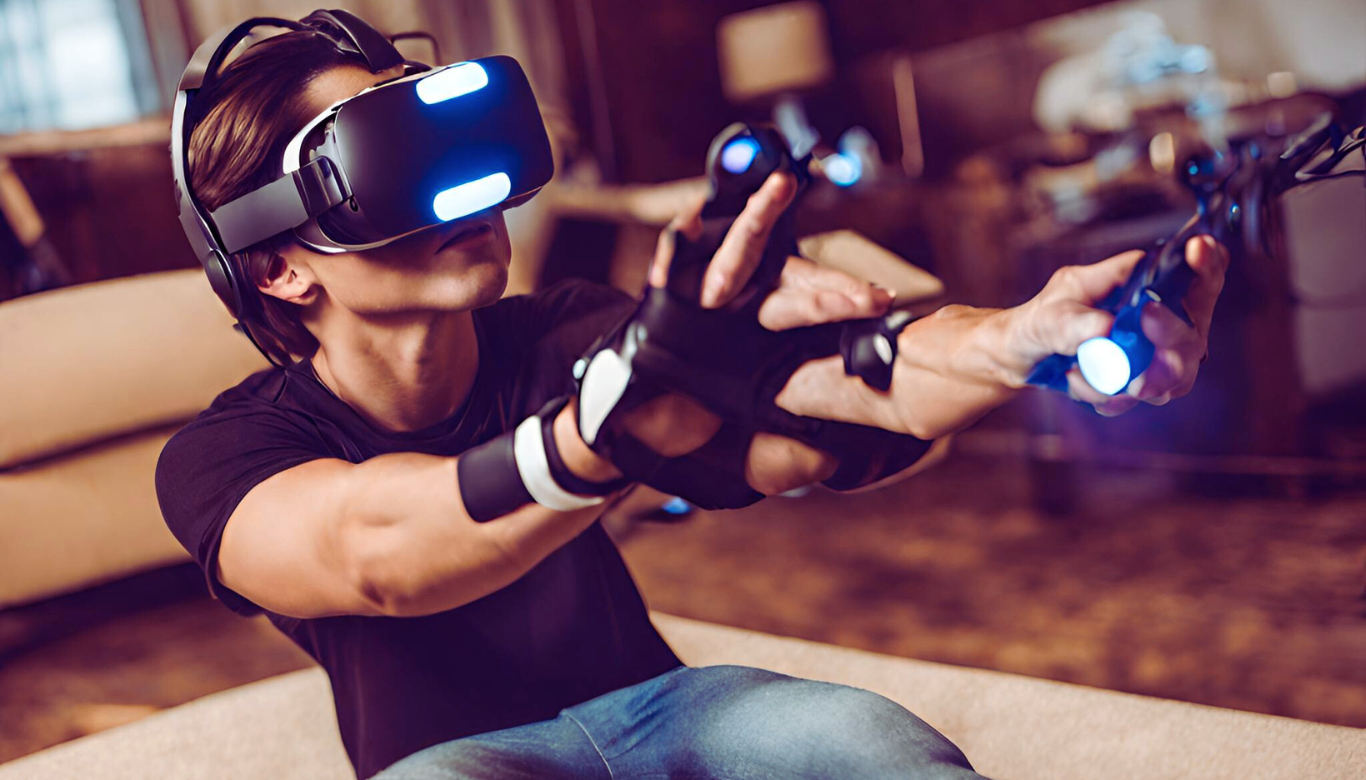
VR in Entertainment: Beyond Video Games
Virtual Reality (VR) is opening new dimensions in the world of entertainment that go beyond what we traditionally know as entertainment. It is transforming into a platform where imagination knows no bounds and where experiences become immersive and participatory.
One of the most notable examples is the emergence of interactive cinematic experiences in VR. These allow viewers not only to watch a movie but actively participate in the plot and make decisions that influence the course of the narrative. This takes the cinematic experience to an entirely new level, where viewers are part of the story.
Real-time virtual concerts have also become an exciting trend. Artists can livestream concerts to a global audience from anywhere in the world. Viewers can join these events from the comfort of their homes and enjoy live performances as if they were truly there, thanks to VR.
Additionally, digital museums allow people to explore art and culture from around the world without leaving their homes. You can visit famous museums, explore interactive exhibitions, and immerse yourself in the history and art of various cultures, all thanks to VR.
Virtual Reality is taking entertainment to the next level by offering immersive, interactive, and global experiences. It is redefining how we experience cinema, music, and culture, promising an exciting and full-of-possibilities future in the world of entertainment.
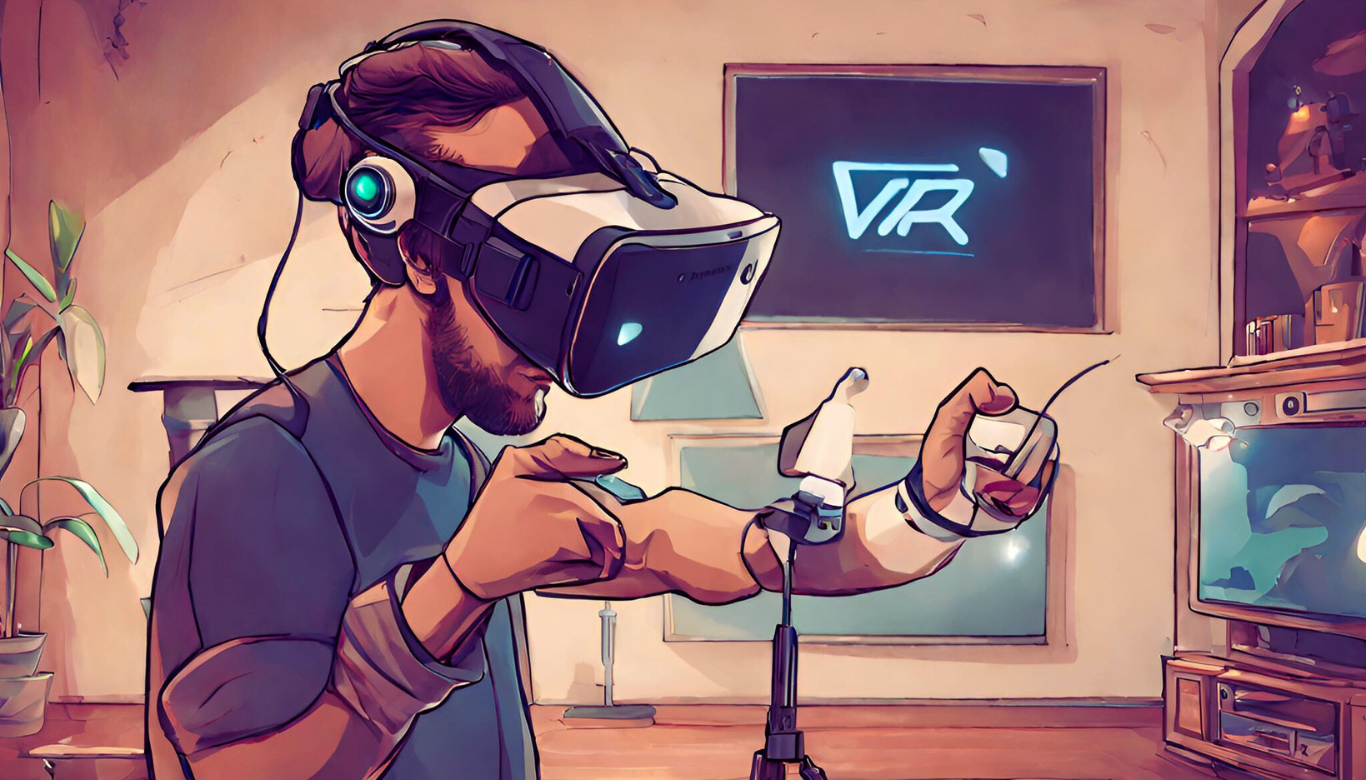
Part 2: Artificial Intelligence - The Brain Behind the Magic

Virtual Assistants
Virtual assistants are playing a pivotal role in transforming the way we live our daily lives. These digital companions have brought Artificial Intelligence (AI) into our homes and devices, and their impact is felt in various aspects.
First and foremost, virtual assistants have simplified home automation. Now, through simple voice commands, we can control lights, thermostats, locks, and other smart devices in our homes. This not only increases convenience but also contributes to energy efficiency and resource savings.
Furthermore, these assistants offer instant access to useful information. They can answer questions, provide news updates, weather forecasts, and perform tasks such as setting reminders and scheduling events on our calendar. This has made information retrieval more convenient than ever, and all we need to do is ask.
Virtual assistants are also redefining the interaction between humans and machines. The ability to communicate naturally through speech is paving the way for more intuitive and accessible interfaces. This is especially beneficial for people with disabilities or difficulties accessing technology.
Artificial Intelligence and virtual assistants are seamlessly integrating into our daily routines, simplifying tasks, facilitating access to information, and enhancing human-machine interaction. This ongoing technological advancement promises a future where our daily lives are even more connected and streamlined thanks to AI.

Autonomous Driving
Artificial Intelligence (AI) is triggering a true revolution in the transportation industry through autonomous driving. This technology promises not only to change the way we move but also to do so in a safer and more efficient manner.
Currently, AI-equipped autonomous vehicles are undergoing rigorous testing and development worldwide. From passenger cars to cargo trucks, these vehicles can make real-time decisions based on data collected by advanced sensors. This enables them to navigate traffic, make safety decisions, and optimize fuel efficiency in ways that were previously impossible.
One of the biggest benefits of autonomous driving is its potential to significantly improve road safety. Autonomous vehicles are designed to eliminate the human factor in driving errors, such as distractions and fatigue, which are responsible for most traffic accidents. This has the potential to save lives and dramatically reduce the number of accidents on the roads.
Furthermore, autonomous driving is opening new opportunities in the automotive and logistics industries. From fleets of autonomous delivery vehicles to driverless taxis, a variety of commercial applications are being explored that can change the way business is conducted and supply chains are managed.
Autonomous driving is becoming a reality, revolutionizing how we move and holding significant promise in terms of road safety and transportation efficiency. This technological advancement marks the beginning of a new era in the transportation industry.

Personalized E-Commerce
Artificial Intelligence (AI) is completely transforming the online shopping experience through personalization. Thanks to advanced machine learning algorithms, AI can analyze and deeply understand our buying behavior and preferences, leading to highly personalized product recommendations and shopping experiences.
At the core of this revolution is AI's ability to process vast amounts of data. Every click, search, and online purchase becomes valuable information that is used to understand what truly interests us. This means that when we enter an online store, we don't simply see a list of generic products but are presented with items that align with our specific preferences and needs.
In addition to product recommendations, AI is also used to customize the customer experience in e-commerce. This can include adapting the online store's interface, organizing products based on our preferences, and automating processes such as customer service.
Personalization benefits not only consumers by providing them with a more relevant and convenient shopping experience but also benefits retailers by increasing conversion rates and customer satisfaction.
Personalization in e-commerce is being taken to an unprecedented level, transforming the way we shop online and improving the relationship between retailers and consumers. This customer-centric approach is redefining the future of e-commerce.
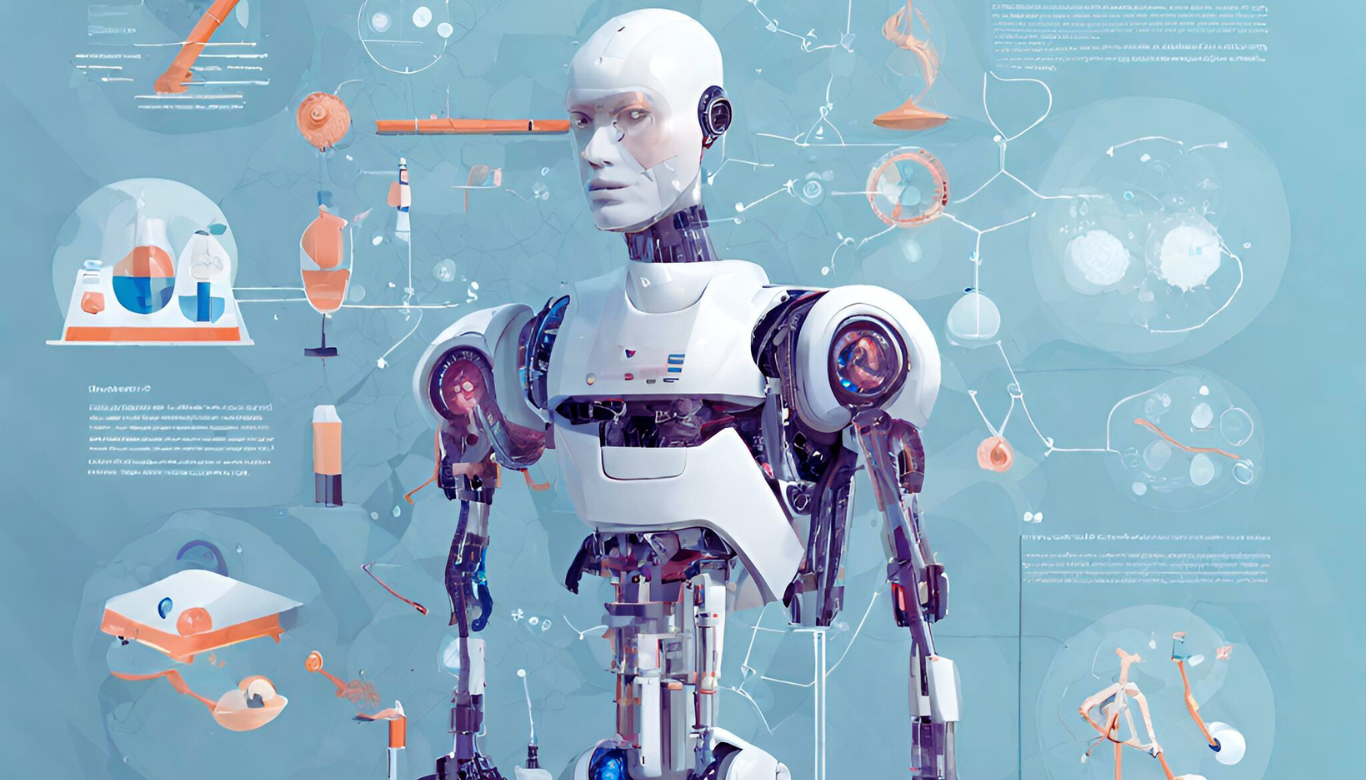
AI in Scientific Research
Artificial Intelligence (AI) has emerged as an invaluable partner in the field of scientific research, significantly accelerating progress in disciplines such as biology, chemistry, and physics. AI's ability to process and analyze large data sets and address complex problems has revolutionized how scientists approach their research.
One of the greatest benefits of AI in scientific research is its ability to handle vast amounts of data efficiently. Scientific experiments generate massive amounts of information, and AI can process this data much faster and more accurately than traditional methods. This allows scientists to analyze data on a previously unimaginable scale and discover patterns and correlations that might go unnoticed otherwise.
Furthermore, AI can address highly complex scientific problems that were nearly impossible to solve before. In fields like bioinformatics, AI is used to analyze genetic sequences, identify potential drugs, and predict protein structures. In chemistry, it assists in designing new materials and compounds. In physics, it aids in modeling complex systems.
AI is also useful in the quest for scientific breakthroughs. Machine learning algorithms can explore vast solution spaces to find answers to fundamental scientific questions.
In this field of scientific research, AI is acting as a catalyst by increasing efficiency in data handling, addressing complex problems, and accelerating scientific discovery. This collaboration between science and technology promises even more exciting advances in the future.

Part 3: The Fusion of Virtual Reality and Artificial Intelligence

True innovation unfolds when VR meets AI:

Intelligent Virtual Worlds
Artificial Intelligence (AI) is unleashing its magic in the creation of intelligent virtual worlds, taking immersion and interaction to previously unimaginable levels. These virtual worlds are not static; they are dynamic and adaptable, completely transforming the user experience in games and entertainment applications.
AI enables the creation of virtual environments that respond in real-time to users' actions and decisions. This means that games and applications can automatically adjust based on player behavior and preferences. Scenarios become more realistic and captivating as AI simulates lifelike reactions from characters and the environment.
Furthermore, AI in virtual worlds enables interaction beyond traditional boundaries. Characters and objects can learn and adapt as you interact with them, creating more personalized and challenging experiences. Virtual worlds feel alive, and the narrative evolves according to your choices.
This evolution in the creation of intelligent virtual worlds has a significant impact on the entertainment industry, from video games to simulation and training applications. AI is enabling more immersive and engaging experiences, attracting an audience eager for new adventures and experiences.
The doors are opening to virtual worlds that are dynamic, adaptable, and interactive like never before. These more immersive experiences are redefining digital entertainment and promise an exciting future for technology and gaming enthusiasts.
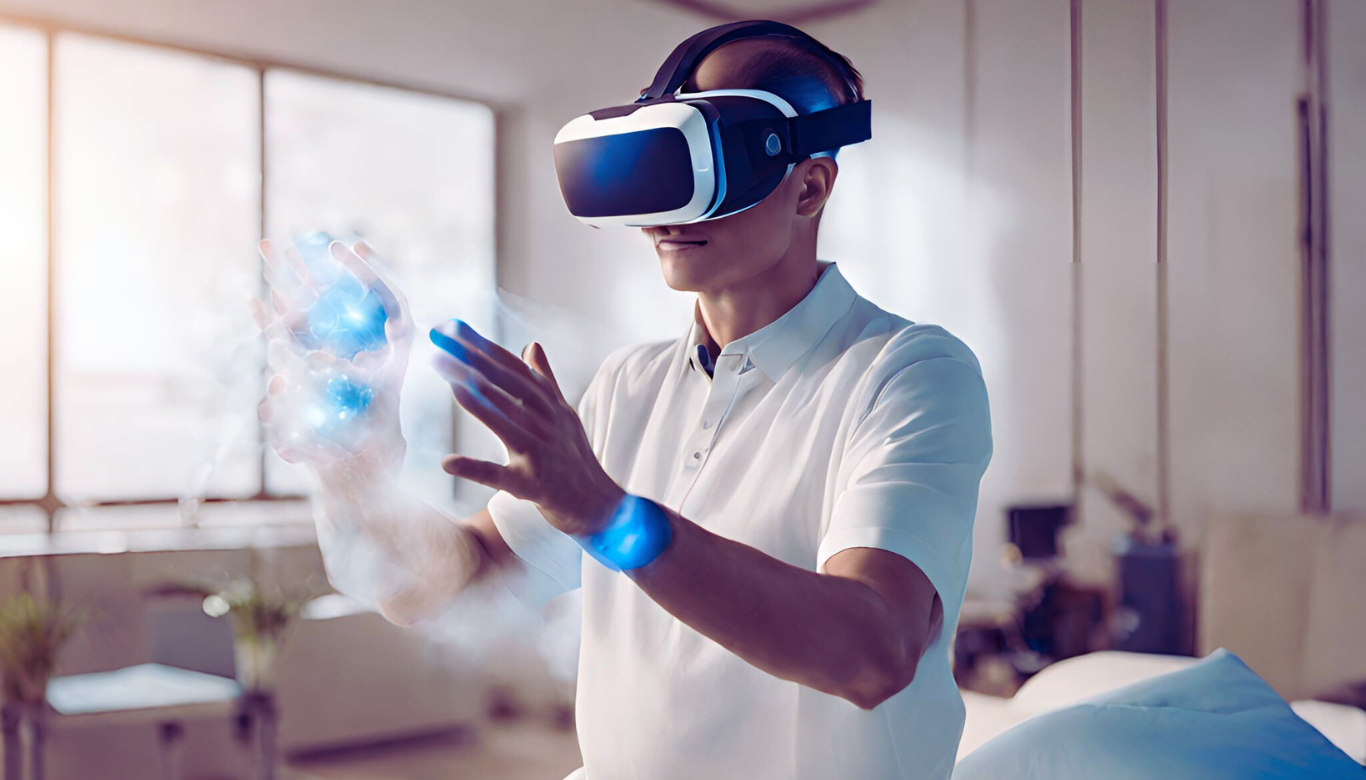
VR and AI-Assisted Therapy
The combination of Virtual Reality (VR) and Artificial Intelligence (AI) is leading to a revolution in the field of mental health by offering highly personalized and effective assisted therapies. This innovation is opening new doors for the treatment of a variety of mental health issues, from phobias and anxiety disorders to trauma and depression.
One of the most notable advantages of VR and AI-assisted therapy is their ability to create controlled and safe therapeutic environments. Patients can immerse themselves in virtual environments specifically designed to address their therapeutic needs. Therapists can use AI avatars to guide and support patients in these environments, providing an additional level of customization and comfort.
Furthermore, VR allows for gradual exposure to feared situations or traumas, which is crucial in therapies like prolonged exposure for the treatment of post-traumatic stress disorder (PTSD). Patients can confront their fears in a controlled and gradual manner, improving their chances of successful resolution.
VR and AI-assisted therapy also have the potential to overcome geographical and healthcare access barriers. People can access high-quality therapies from the comfort of their homes, increasing accessibility and convenience.
VR and AI-assisted therapy are revolutionizing mental health by offering more personalized and effective therapeutic approaches. This combination of technologies promises a more hopeful future for those seeking treatment and support on their journey to mental well-being.
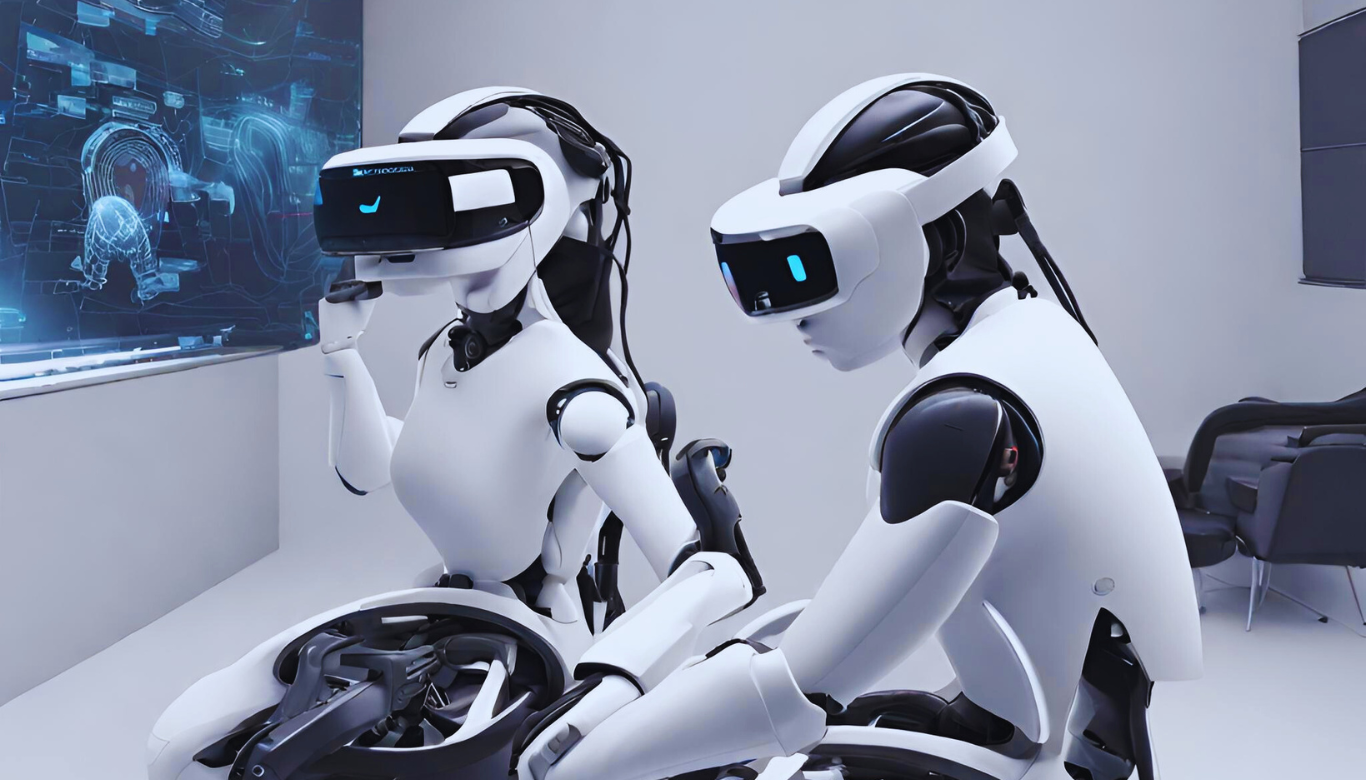
The Future of Collaboration
The future of collaboration is undergoing a radical transformation thanks to the combination of Virtual Reality (VR) and Artificial Intelligence (AI). These technologies are redefining how people work together, offering solutions that transcend geographical barriers and promote workplace efficiency.
VR-driven virtual meetings are taking global collaboration to new levels of interactivity. Teams can connect from different parts of the world in a shared virtual environment, where they can interact naturally and make real-time presentations. This eliminates the need for travel and enables more efficient and sustainable global collaboration.
AI plays a significant role in organizing and optimizing workplace collaboration. AI-based virtual assistants can schedule meetings, assign tasks, and manage communication between teams in an automated manner. This frees up time and resources for professionals to focus on more strategic and creative tasks.
Furthermore, VR-driven virtual work environments are enabling greater workplace flexibility. Teams can effectively collaborate from remote locations, providing more flexible remote working options. This is particularly relevant in a world where hybrid work and mobility are becoming increasingly important.
VR and AI are paving the way for more efficient and flexible workplace collaboration. These technologies are redefining how people collaborate and promise a future where physical distance is no longer a barrier to effective global collaboration.
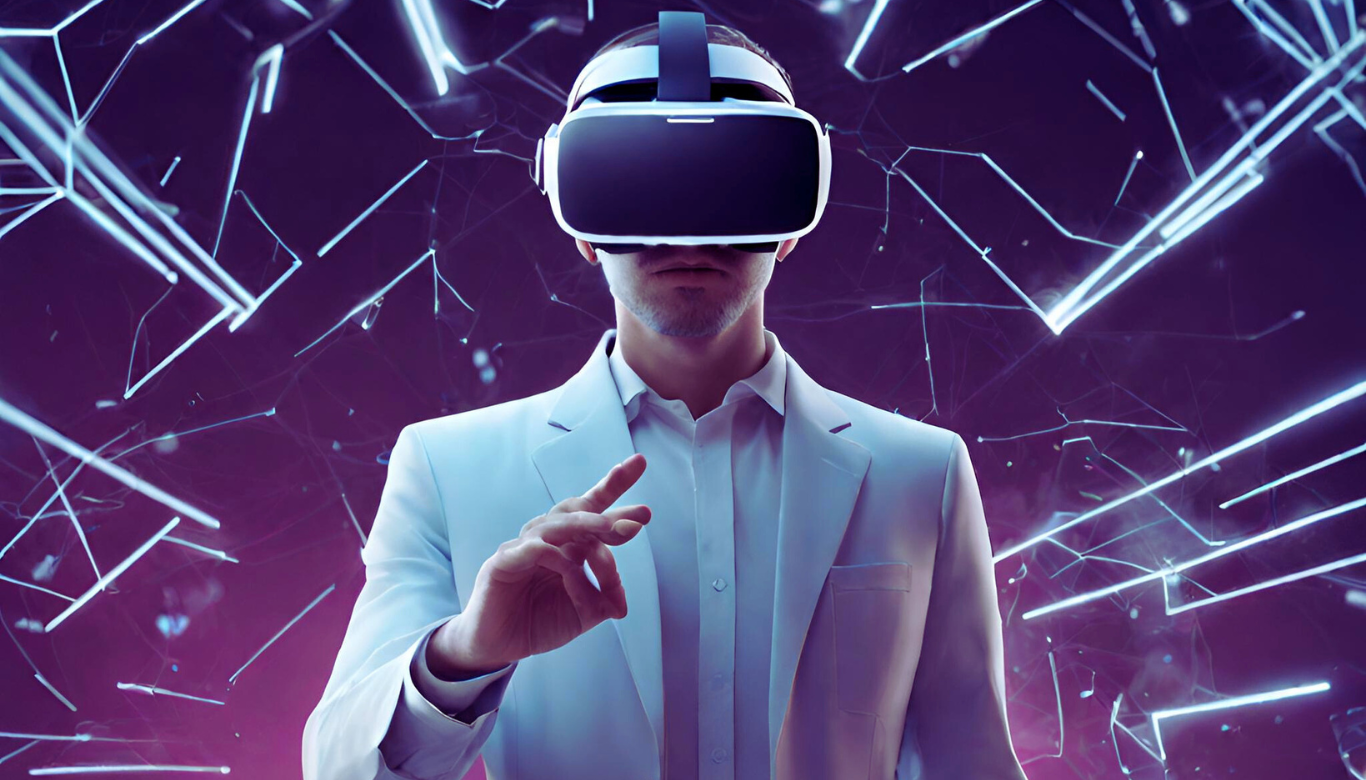
Part 4: The Social and Ethical Impact

Privacy and Security in VR and AI
The ongoing growth of Virtual Reality (VR) and Artificial Intelligence (AI) has raised significant concerns about data privacy and security in an increasingly tech-saturated world. As VR and AI become ubiquitous in our lives, it is crucial to effectively address these concerns to protect the rights and safety of citizens.
In the realm of data privacy, the massive collection and storage of personal information pose important questions. Companies and governments must establish robust regulatory frameworks to ensure that user data is handled securely and used ethically. This includes data anonymization, informed consent, and transparency in the collection and use of personal data.
Cybersecurity is another fundamental concern. The growing interconnectivity of devices and systems in an AI and VR-driven environment creates vulnerabilities that can be exploited by cybercriminals. It is essential for companies and governments to invest in strong cybersecurity measures to protect critical infrastructure and sensitive information.
Furthermore, ethics play a crucial role in security and privacy in the world of VR and AI. Ethical decisions related to data collection and use, algorithmic decision-making, and the creation of virtual environments must be carefully considered and monitored to avoid negative consequences.
While VR and AI offer exciting and transformative opportunities, it is essential to proactively address concerns related to data privacy and security. This will require collaboration among companies, governments, and society as a whole to ensure an appropriate balance between technological innovation and the protection of individuals' rights and safety.



